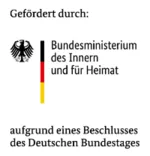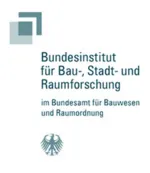Resource-Optimized Cultural Heritage Buildings (Memory Institutions)” – “ReKult”
Project partners:
Technical Universities of Berlin, Braunschweig,
Munich, and the Rathgen Research Laboratory of the National Museums in Berlin.
Project Description:
The Assessment System for Sustainable Building (BNB) of the Federal Ministry for Housing, Urban Development, and Building is to be analyzed, and its transferability to cultural heritage buildings (Memory Institutions - MIs) such as museums, archives, libraries, and depots is to be examined.
In times of energy shortages and rising costs, MIs incur substantial additional expenses related to construction and operation. The worsening climate crisis also raises questions about the suitability of existing and potential new buildings for operation and further development.
The distinctive characteristic of museums, libraries, archives, and depots is the interaction between objects, buildings, visitors, and other users. Sustainability must become a central criterion for all future principles in planning and implementation. Museums and collection facilities must reduce their comparatively high CO2 footprint to counteract the effects of the global crisis. For instance, significant climate-damaging mistakes are being made in the area of climate control, with systems based on narrow temperature and humidity ranges that prioritize technical feasibility over the actual conservation needs.
The new planning approaches developed in the project will require a reassessment of preventive conservation based on holistic risk management. Key elements related to buildings, such as digital models (Building Information Modeling - BIM), thermal-dynamic simulations, and direct monitoring using sensors on the building, provide the foundation for this. Optimization is then achieved, for example, by adjusting the models using the sensor data.
This will mark the necessary shift from a protocol-driven to a process-driven decision-making culture, which must be integrated into the BNB system for MIs.
The two-year research project will therefore focus on analyzing four core questions related to the BNB:
- Appropriate protection requirements for objects, collections, and buildings
- Appropriate building technology systems
- Recommendation of suitable sensor technologies and monitoring systems for a building model in the sense of a digital twin
- Conception of a BNB module for MIs
The project coordinator is Prof. Dr. Stefan Simon, Director of the Rathgen Research Laboratory of the National Museums in Berlin. The consortium is further strengthened by the contributions of the following partners: Prof. Eike Roswag-Klinge (Technische Universität Berlin, Natural Building Lab, Department of Constructive Design and Climate-Friendly Architecture), Prof. Elisabeth Endres (Technische Universität Braunschweig, Institute for Building Climatology and Energy in Architecture), and Prof. Dr.-Ing. habil. Christian U. Grosse (Technical University of Munich, Chair of Non-Destructive Testing, Department of Materials Science and Engineering).
The development of a BNB system variant for MIs (both existing and new buildings) will be highly beneficial to other operators of similar MIs at all levels of government.
Start: 01.11.2022
Duration: 2022–2024
Funding: The Federal Ministry of Housing, Urban Development and Building, through the Federal Office for Building and Regional Planning (BBSR).
Responsible Participants: Prof. Dr. Christian U. Grosse, Dr. Olga Popovych
If you have any questions about the project, please contact the project coordinator at the Rathgen Research Laboratory rf(at)smb.spk-berlin.de


